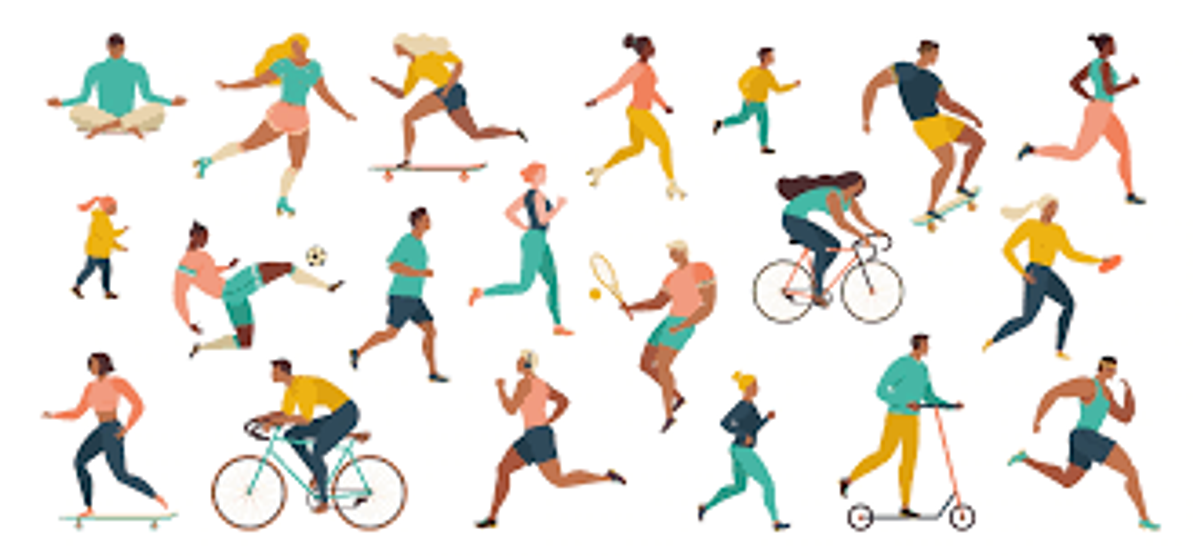HUMANTIES - HEALTH ARTICLE

As part of the Year 9's Humanities CAT and focus on civics and citizenship, they are exploring the world's problems and how to create change.
One group is focusing on nutritional and physical health and as part of their action plan have requested to share their findings about physical and nutritional health, with their BSC community .
They wrote a small report on the results of their survey conducted and how students can improve their overall health.
By: Ashlee, Agatha, Lauren, and Adam
As part of our Year 9 Humanities CAT and focus on civics and citizenship, we are exploring the problems of the world and how to take positive action through the process of the 3A’s (Awareness, Advocacy, Action).
Our group decided to focus on physical and nutritional health of teens. As part of our action plan, we hung up posters around the school as well as send out a survey for Year 9’s to complete to gain insight on the state of health of year 9’s. The last action we will undertake is this highlights post where we hope to teach you a few lessons about healthy lifestyles and how to improve your health as well as a final quick survey for our BSC Community to fill out after reading this article.
So, what are some aspects of a healthy lifestyle you could improve.
Exercise
A great way to improve your physical health is to exercise. And it’s not about hitting the gym and bulking out but getting physical activity into your everyday routine. This could be going on a jog with your friends or walk your dog in the morning. Maybe do some yoga or Pilates. A morning walk or going for a swim at your local pool or beach is also a great idea. Cycling to school instead of getting dropped off is also a good form of exercise. If you feel fancy, maybe learning a new dance, do jump rope for a few minutes or go rowing/kayaking at the beach or a nearby river. Working out at home or local gym with or without weights is always a good option. All these examples are forms of exercise and can be incorporated into your daily routine to keep you fit, healthy and in shape.
Food choices
Another way to keep healthy is to monitor your food choices. This doesn’t mean cutting out treats from your diet, it’s ok to have a treat or two sometimes but it is important to not have too much sugar in one day. Having a healthy diet means having a balanced diet and consuming plenty of fruits and veg. Generally, if your plate is full of healthy colour, you know you’ve got a balanced meal. An example could be making a salad with your lunch or dinner. Consuming sugary and energy drinks as well as lollies, jelly, junk food and processed food isn’t healthy in large quantities and should generally be avoided. Below you can find a food pie chart to see how much of what you need to eat to maintain a balanced and healthy diet.
Sport
Participating in sports is both healthy in a physical, mental, and social aspect and is something highly recommended to get involved in. Many already participate in club sports but for those who don’t or want to try something new, we highly recommend you try a new sport out. Most clubs have a first lesson or week, free of charge to see if you like it. You could try out your friend’s basketball team or netball team. Maybe join the new footy team or the local hockey club. You might want to try out a new martial art. Participating in club sports is extremely healthy for you and you never know what you may like if you don’t try something new.
Sleep
Sleep is one of the most important things your body needs for everyday activities. A lack of sleep can lead to fatigue and tiredness, lower immune levels, lack of energy and prolonged lack of sleep is linked to depression, anxiety, heart disease, high blood pressure, obesity, diabetes, and kidney problems. Of course, going to sleep for one day won’t make you ill but it’s important to get at least 8 hours of sleep per day especially for our developing brains. If you can’t get 8 hours one night that’s okay, but not getting enough consistently isn’t good. It’s important to understand that even studying late isn’t healthy as the next day you will be tired and perform poorer than you would if you didn’t study. An excellent way of keeping track of sleep is to set yourself a deadline or bedtime and try not to wake up earlier than needed. Most of us these days have smart watched that can track how much we’ve slept and that’s also a great way to stay on top of your sleeping patterns.
We hope you have enjoyed reading this article and hopefully learn something new or gained new ideas. Staying healthy is extremely important and sometimes hard to do in today’s world and the sooner you change your habits the more benefits you’ll experience.
Before you flick to the next page, if you could take 2 minutes to quickly fill out a survey (link attached below) to help us reflect on our project and how effective our actions were, we would very much appreciate it. Otherwise, good luck in all your future endeavours.
Agatha, Ashlee, Lauren and Adam 9S
Survey Link: https://forms.office.com/r/8FYhe4vKbe


